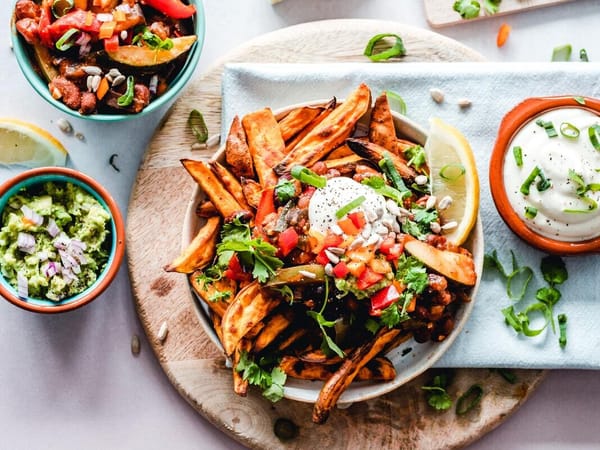
You might be thinking to switch to a plant-focused or plant exclusive diet, but are wondering where to start? It's understandable, as changing life-long habits can be a hard thing to do. My transition was an overnight one, but I realise that that was an anomaly. There are so many benefits to living a plant-based lifestyle - from health, environmental, to ecological reasons. Here are some simple strategies that you can use to make your transition to a diet populated by plants a smooth one.
Find your 'why'
Finding the 'why' behind making such a transition is important in being able to stick to it. Watching documentaries dedicated to veganism and everything that it entails is a great place to start.. What The Health, The GameChangers, Forks over Knives and Cowspiracy (1) are a great place to start. This array of films covers the environmental, ethical and healthful benefits of a plant-based diet, giving you a good platform to find which aspects you connect with. Knowing exactly why you want to make a change - in any aspect of life - is key in staying the course, and making long-lasting habits.

Start slow
If jumping into it cold turkey is beyond you (as I imagine it would be as breaking habits is difficult) I would remain patient, and start slow. Throw in one plant-based meal per week, then one plant-based day per week, and increase it from there. It's also wise to look up easy plant-based meals that you can have as your go-to's. I'll be sure to be putting up more recipes on the blog, so hopefully you can get some inspiration from here! Make sure pantry staples such as rice, beans, tomatoes and lentils are always present, as they are easy to incorporate into a wide variety of easy plant-based dishes.
Stick to whole-foods
With the continued rise in processed vegan foods, it's easy to fall into the trap of consuming these instead of minimally processed foods that provide optimal nutrition and satiation. I have often heard of people saying they tried going vegan for a short period of time and then going back to eating meat, but when I ask them what the foundation of their diet was it often is one that focuses on processed and convenient vegan foods.
From an environmental and ethical standpoint, these foods are of course better than eating animal products. For health though, ultra-processed foods - whether animal-based or plant-based - are not health promoting. A 2019 study from Hall et al. showed that ultra-processed foods cause weight gain due to the increased number of calories required before satiation (2) Stay on track with fruits, vegetables, unrefined grains, legumes, nuts and seeds, and you will find it easier to maintain, and far more health-promoting.

Increase food volume
One important step to consider is the increased volume of food that you will have to intake. This is because animal-based foods are naturally more calorie-dense than plant foods. But who doesn't want that, when you know that the foods you are transitioning to are more nutrient dense than animal products, and very health-promoting! Sources of complex carbohydrates like sweet potatoes, brown rice and wholegrain pasta, alongside vegetables and a plant-protein source will give you more than enough density on your plate. With more plant foods as well comes more fibre, and the feeling of being full. This means that it is very difficult to over-consume calories on a plant-exclusive diet. There are studies to support the satiety-enhancing property of fibre (3), in adding bulk to meals and reducing excess food intake.
Lifestyle over diet
When making a dietary shift, generally it can be accompanied by a feeling of lack, of restriction, and ultimately falling off the wagon. But when we consider the diet shift as part of an overall change in lifestyle, that's where the magic happens. Seek out like-minded people on a similar journey, connect with people on social media and do your best to not see it as 'what can't I eat', rather focus on the abundance and variety of delicious plant-based foods you can explore. What's more, this new lifestyle will bring awareness to your environmental and ethical impact on society, making this a win-win all round.
References:
(1) What the Health, The GameChangers, Forks over Knives and Cowspiracy all available on Netflix
(2) Ultra-processed diets cause excess calorie intake and weight gain; Kevin et al, 2009, Cell Career Network
(3) Dietary fibre and satiety; J Slavin, H. Green, 2007, British Nutrition Foundation
